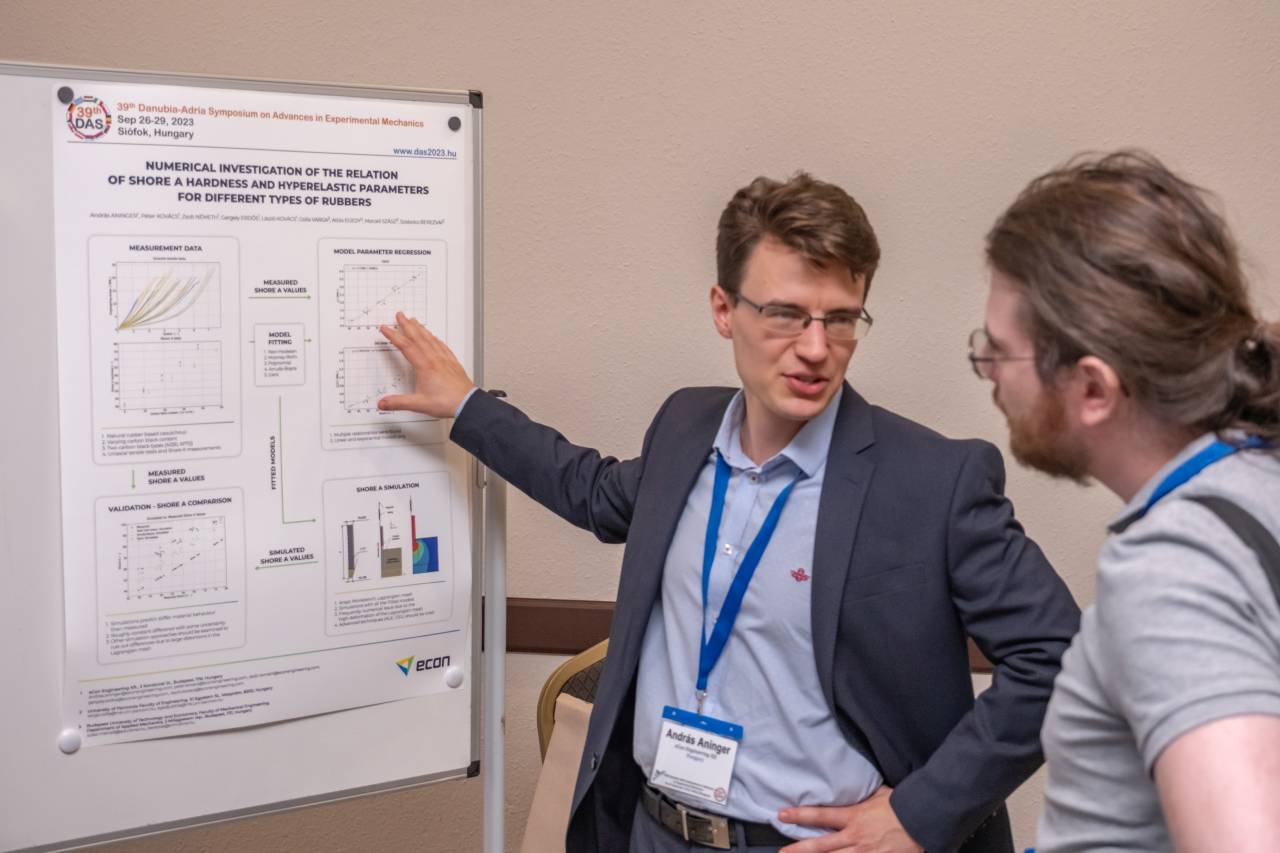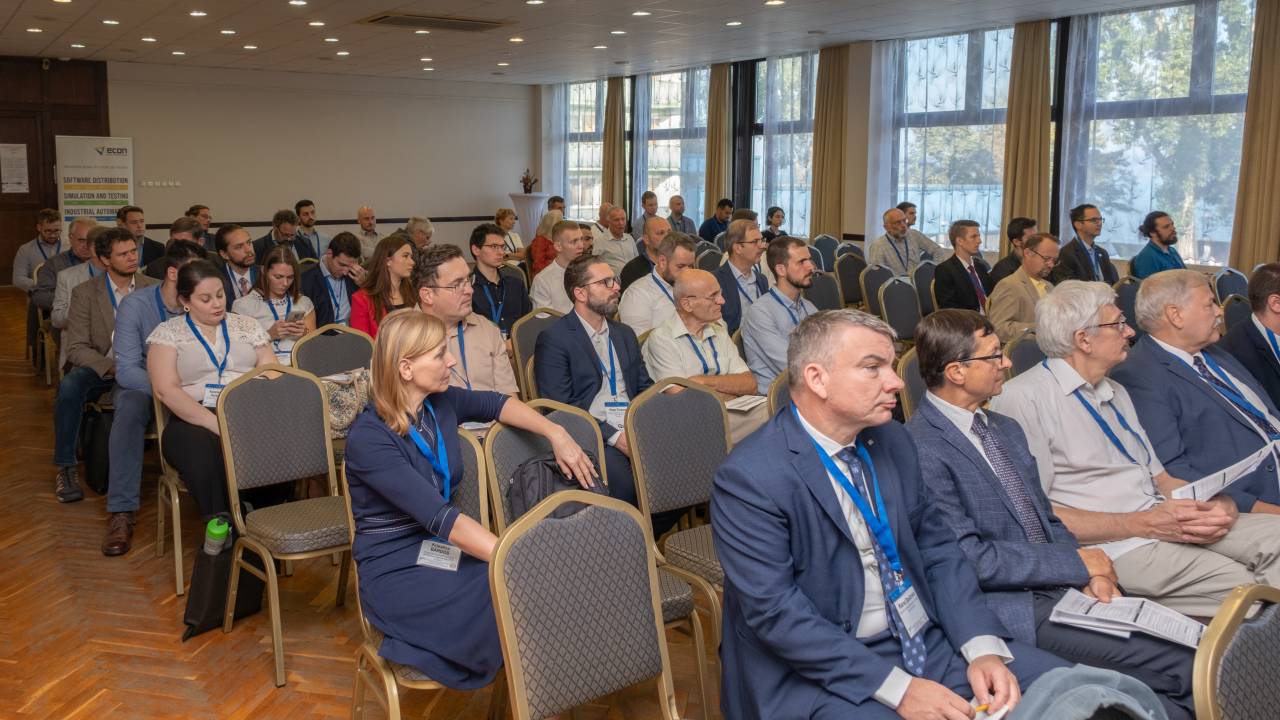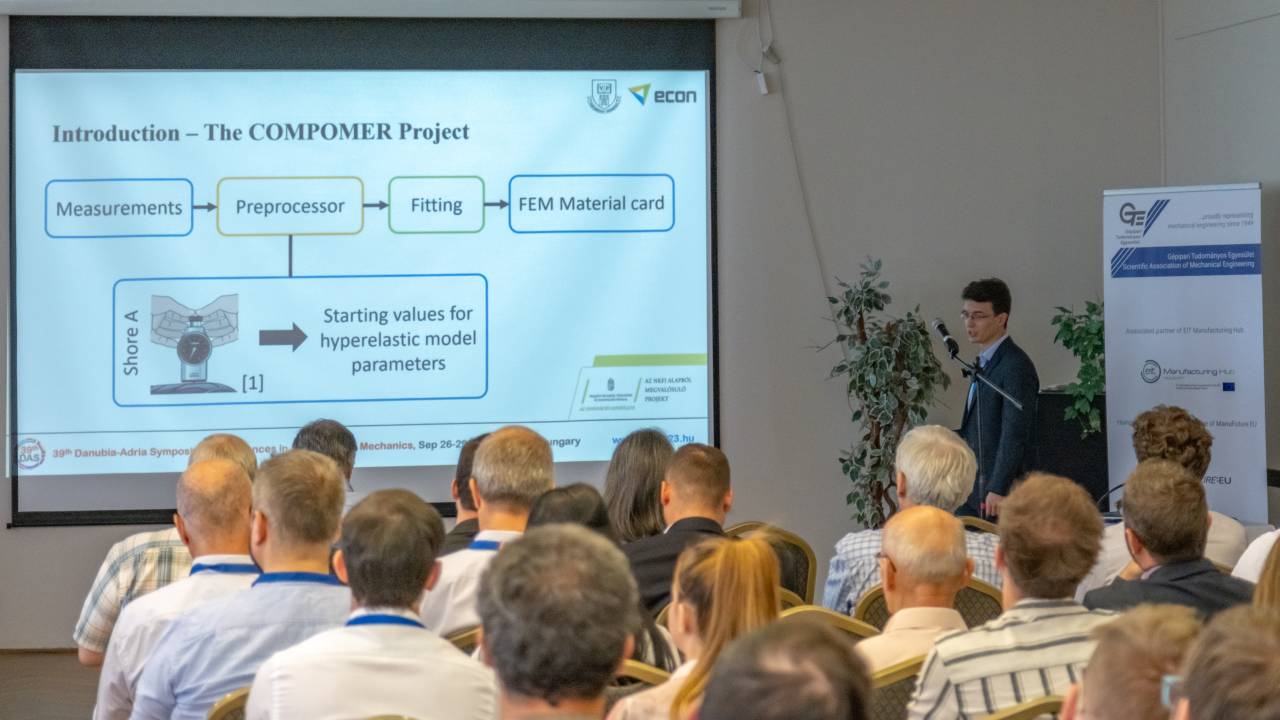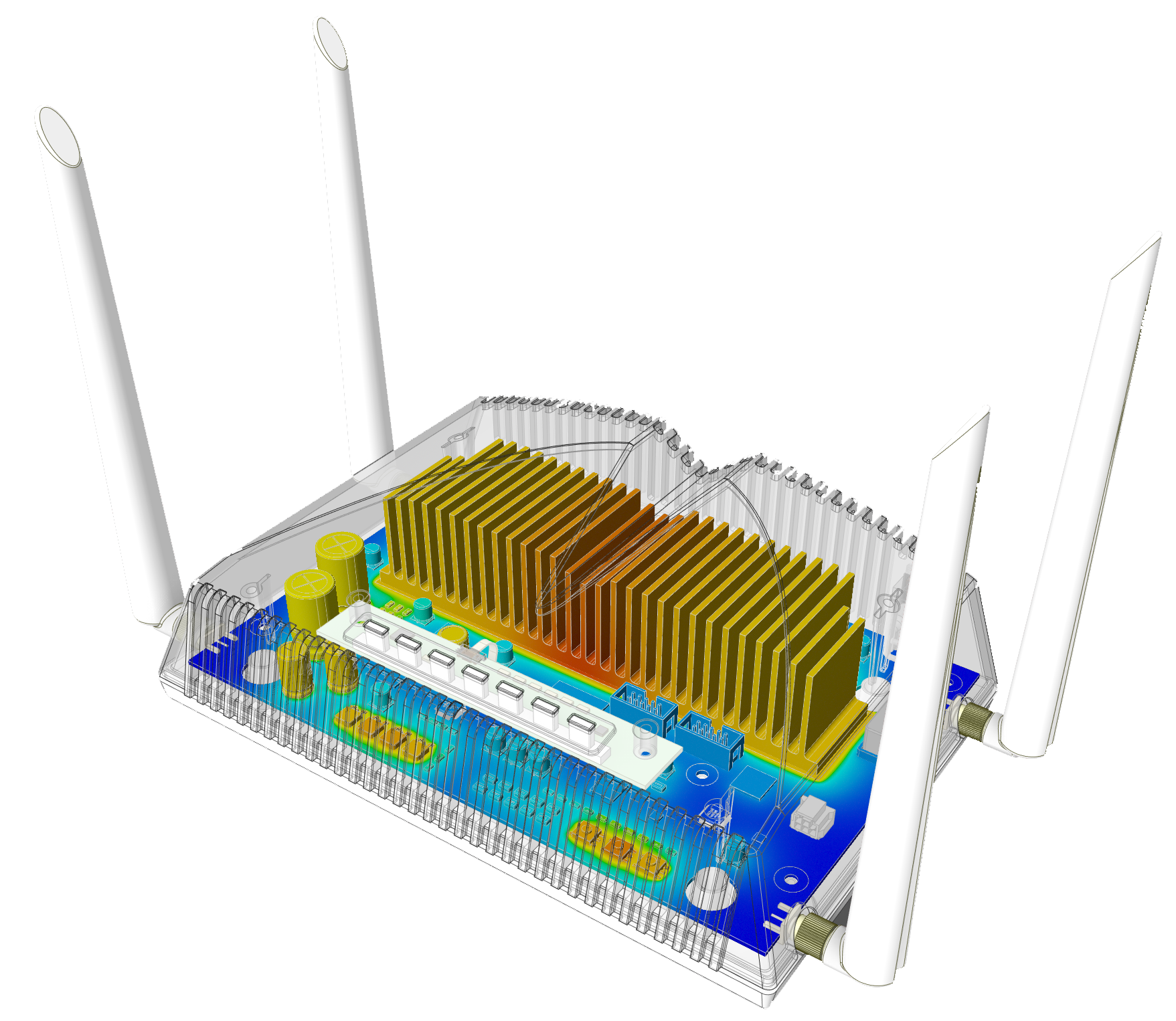The 39th Danubia-Adria Symposium focused on developments in the field of experimental mechanics, and the three-day event also featured a presentation by András Aninger, structural analysis engineer at Econ, on Numerical investigation of the relation of Shore A hardness and hyperelastic parameters for different types of rubbers.
DAS (Danubia-Adria Society on Experimental Methods) was founded in 1983. The professional organization aims to promote experimental mechanics, covering all aspects from the development of methods to their application, to improve the quality of products and processes, and to develop new educational models. To achieve this objective, DAS aims to encourage the exchange of experience and ideas between academics and researchers from universities and other technical and scientific societies; and to develop multilateral areas of technological cooperation between researchers and technicians from different countries. To contribute to and strengthen mutual scientific benefits, the Society organizes an annual symposium entitled Advances in Methods and Applications of Experimental Mechanics. The Danubia-Adria Symposium focuses primarily on experimental mechanics and thus focuses on papers that incorporate any experimental mechanics technique in scientific analysis.
In 2023, the symposium was organized by the Society of Mechanical Engineering (GTE) and chaired by Dr. Attila Kossa, deputy head of the Department of Mechanical Engineering at BME. The main event topics were structural analysis, material modeling, biomechanics, instrumentation, numerical methods combined with experimental mechanics, and industrial projects.
Econ at the Danubia-Adria Symposium
We were delighted that among the varied topics of this year’s Danubia-Adria Symposium, András Aninger, structural analysis engineer at Econ Engineering, gave a presentation on Numerical investigation of the relation of Shore A hardness and hyperelastic parameters for different types of rubbers. About 40 participants attended the session. After the lecture, there were several inquiries and personal discussions, both from Ph.D. students and university professors, and from representatives of professional companies.
One of Econ’s related COMPOMER research project‘s aims is to develop a methodology for high-fidelity material parameter fitting, tailored specifically for rubber-like materials that can be characterized by hyperelastic constitutive models. The concept involves the automatic pre-processing of available mechanical test information, such as Shore A hardness, uniaxial tensile, and compressive experiments, to select the best possible theoretical model.
Read the abstract of András Aninger’s presentation here!



